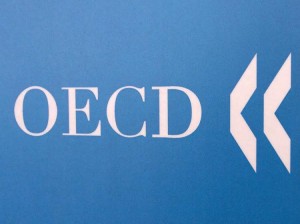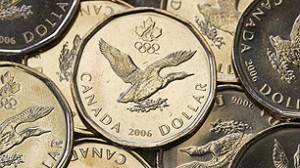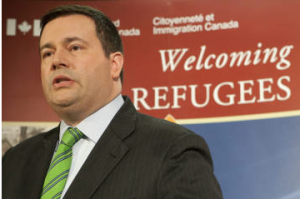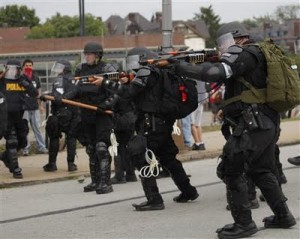Small army to protect Toronto during G20 summit
Police forces have entered into an alliance to deal with the threat of violent protest at Toronto’s G20 summit with as many as 10,000 uniformed officers and 1,000 private security guards teaming up to protect world leaders.
Federal contract tenders obtained by The Globe indicate a small army will descend on Canada’s largest city this June, exceeding the estimated 6,000-police-officer presence at Vancouver’s 2010 Olympics ![[]](http://images.intellitxt.com/ast/adTypes/mag-glass_10x10.gif) .
.
The police security will come at a cost of hundreds of millions of dollars, although police officials would not confirm deployment numbers. Yet federal contract tenders posted online indicate how things are shaping up.
“For the G8 Summit [in Deerhurst, Ont.] the RCMP/OPP will require approximately 4,000 personnel with duty-related belongings to be transported at different dates, times and locations,” reads a contract tendered for shuttle buses. “For the G20 Summit, the RCMP will require approximately 5,600 personnel with duty-related belongings to be transported at different dates, times and locations.”
Spokeswoman RCMP Sergeant Michele Paradis said yesterday “we won’t ever give out the number,” of police assigned to the Group of 20 meetings, set to be held inside downtown’s Metro Convention Centre on the June 25 weekend, and the Group of Eight meeting that immediately precedes it at the Deerhurst Resort north of the city.
The RCMP-led Integrated Security Unit, to be buttressed by non-Mountie police officers seconded to the ISU, has the responsibility of protecting VIPs. And several specialized police units — SWAT teams, intelligence analysts, motorcade escorts — are expected to fly down from Deerhurst for the Toronto summit.
On top of all that, a new federal “letter of interest” seeks to hire a contractor who can provide airport-style security at various checkpoints.
“The contractor will be required to provide approximately 1,030 security screening personnel to perform pedestrian screening in designated areas,” the letter reads.
The tender doesn’t say where the guards will be stationed, but they are to be outfitted with “Magnetometers,” “walk-through metal detectors,” “X-Ray belt driven scanners” and “hand-held metal detectors.”
Sgt. Paradis, who handles communications for federal police, said “we are going to use private security, and this will be used to augment the security process.” Stressing she would not speak to numbers, she did add that no numbers are set in stone and that the force levels will vary depending on what circumstances and threat levels dictate.
In Pittsburgh, which hosted the G20 last September, 6,000 police and National Guard were called in the assist city police.
In June the overall ranks of security forces could even rival the estimated 15,000 dignitaries and journalists anticipated for the G8/G20 summits. The Toronto Police Service is expected to have much or most of its 5,500-member uniformed force on duty to protect the metropolis that weekend — officers were warned not to book any vacation months ago. “I cannot comment on TPS deployment beyond telling you that … all hands are expected to be on deck to police the entire city,” said City Councillor Adam Vaughan, a member of the police board.
And unspecified numbers of Canadian soldiers and spies will also work behind the scenes to help thousands of police safeguard the meetings. Meanwhile, world leaders like U.S. PresidentBarack Obama ![]() will also bring added layers of guards of their own.
will also bring added layers of guards of their own.
Publicly available contract tenders for police transport, private security, and communications systems are currently available on the merx.com website for those who search the term “G20.”
Take our FREE Online Assessment Today!
Socialize with Abrams & Krochak
Canada ‘enthusiastic rebound’ best in G7, OECD says

A global economic forecasting group says Canadian economic growth will outpace that of other G7 nations by a wide margin during the first half of 2010.
The Paris-based Organization for Economic Development and Co-operation is forecasting that Canada’s economy grew 6.2 per cent in the first quarter, well ahead of the 1.9 per cent overall growth for the G7 nations.
The OECD predicts that Canada’s second-quarter growth will be about 4.5 per cent, nearly double the 2.3 per cent growth expected from the combined G7.
The latest outlook comes as Canadian economic data shows the country embarked upon an enthusiastic rebound at the start of the year.
In January, Canada’s gross domestic product advanced 0.6 per cent, driven by growth in activity in factories, at construction sites, in mines and in the oilpatch.
However, economists have cautioned that Canada’s economic growth will likely slow down as the Bank of Canada is expected to raise interest rates this July, while consumers could decrease spending to pay off their debts.
In the OECD study, the organization said that growth in leading rich economies will slow in the first half of this year, with the United States and Japan outpacing sluggish Europe.
The OECD links the slowdown to the end of some government stimulus programs and the emptying of inventory stocks all while the recovery and labour markets remain frail after the worst global recession in decades.
Most of the global economic growth this year is expected in countries not addressed in the report, such as China, India and Brazil.
Still, “overall it is an encouraging picture,” OECD chief economist Pier Carlo Padoan told a news conference about the agency’s report on the Group of Seven industrial economies. “It is stronger in the United States and Japan, it is not as strong in Europe.”
The OECD forecast that U.S. gross domestic product would rise 2.4 per cent in the first quarter and 2.3 per cent in the second quarter, down from 5.6 per cent in the fourth quarter of last year. Forecasts for Japan are 1.1 per cent and 2.3 per cent for the first two quarters of 2010, down from 3.8 per cent in the fourth quarter 2009.
Forecasts for Germany fell, however, blamed on a slump in construction activity.
The OECD urged rich governments to end stimulus programs next year or earlier to avoid sinking deeper into debt. But it warned that they should do so gradually and carefully.
“Despite some encouraging signs on activity, the fragility of the recovery, a frail labour market and possible headwinds coming from financial markets underscore the need for caution in the removal of policy support,” the report said. “Consolidation should start in 2011, or earlier where needed, and progress gradually so as not to undermine the incipient recovery.”
Dollar continues to hover near par

The Canadian dollar continued to straddle parity with the U.S. currency Wednesday.
Shortly after 10 am E.T., the loonie was trading at 99.97 cents U.S., up .09 of a cent from Tuesday’s close.
It rose as high as 100.03 cents US earlier Wednesday, a day after it moved above parity with the greenback for the first time since July 2008.
The dollar’s move up came the same day a global forecasting group called for Canada’s economy to grow more than others in the G7 over the first six months of this year.
The Paris-based Organization for Economic Development and Co-operation is forecasting that Canada’s economy grew 6.2 per cent in the first quarter, well ahead of the 1.9 per cent overall growth for the G7 nations.
It predicted second-quarter growth will be about 4.5 per cent, nearly double the 2.3 per cent growth expected by the combined G7.
The organization says that growth in leading rich economies will slow in the first half of this year, with the United States and Japan outpacing sluggish Europe.
Take our FREE Online Assessment Today!
Socialize with Abrams & Krochak
Canada Targets Asylum Laws

Canada’s immigration minister proposed sweeping changes to the country’s asylum legislation on Tuesday, aiming to help clear a multiyear backlog in processing refugee applications and stem a recent inrush of claimants.
The overhaul would address an asylum system considered one of the fairest and most generous in the world—but that is now clogged by cases after a 68% rise in applications since 2005. Jason Kenney, minister of citizenship, immigration and multiculturalism, blames this on a slow, convoluted approval system he says has been exploited by claimants who are after economic opportunities and benefits, not protection from persecution.
The changes would speed hearings, streamline appeals and accelerate deportations when applications are denied. They are “essential to fix serious problems in Canada’s asylum system,” Mr. Kenney said, adding that he hopes the amendments will pass in Parliament in time for implementation next year.
No opposition parties have said they’ll vote against the amendments yet, and one has signaled cautious support.
Critics warn the plan could erode Canada’s position as a haven by removing safeguards that give anyone a fair chance to show they need protection. Refugee-advocacy groups and opposition-party legislators are wary of a proposal to deny appeals to applicants who come from countries to which Canada deems they can be safely returned.
“To set up two classes of refugee claimants is not right,” said Olivia Chow, the lawmaker from the left-leaning New Democratic Party who handles immigration issues. “Every single individual should have equal rights.”
Under Canada’s current system, applicants apply under the standard United Nations definition of a refugee, meaning they fear some sort of persecution at home. In Canada, each is granted a full hearing by a judicial body, a process that has won praise from the United Nations’ refugee agency, said Peter Showler, a professor of refugee law at the University of Ottawa law school and former chair of the Immigration and Refugee Board of Canada, the government agency that reviews asylum applications.
In recent years, that ease of application combined with the lengthy review process has meant a greater caseload than the system can handle. Mr. Kenney says it has also encouraged more applications from people who don’t need protection but hope to figure out a way to stay during the years it takes to process their cases.
Canada had a backlog of 61,000 refugee applications at the end of December. On average, claimants must now wait 19 months for a first hearing; applicants who are denied can stay for as long as 10 years until they have exhausted all avenues of appeal and are deported, Mr. Kenney said. Nearly 60% of applications are eventually denied.
The proposed asylum-system overhaul will cost an estimated 540 million Canadian dollar (US$530 million); it would require initial hearings on applications within 60 days, conducted by civil servants rather than political appointees as is done now. It would also increase resources for security screenings, a step the U.S. has long requested, said Mr. Kenney.
Rejected applicants can appeal the decision unless they are from countries listed as “safe”—generally democracies with “robust” human-rights records, which don’t normally produce refugees, Mr. Kenney said. The removal of that appeals process will allow Canada to deport rejected applicants from these countries much faster than it does now, he said.
“It’s a tool that’s used not to restrict [applicants’] access to a hearing but to accelerate removal after they’re denied,” said Mr. Kenney.
Mr. Kenney noted that many European countries, including France, Germany and the U.K., already use such lists. Canada will craft its own list in consultation with the United Nations High Commissioner on Refugees, and will consider only countries that fit the qualifications, and are “major sources of unfounded asylum claims,” he said.
A case in point is Hungary, the source of 2,440 asylum applications to Canada last year, second only to Mexico. Only 267 cases from Hungary were closed in 2009. Of those, the vast majority–97%—withdrew their applications on their own. Of the cases actually heard, three people were admitted and five rejected.
Some asylum applicants subsequently said they were coached to file false claims in order to receive welfare and social benefits, Mr. Kenney said.
Refugee advocates warn it’s not easy to determine which countries are safe and which aren’t. Some governments may ignore violence against ethnic populations or be too corrupt to enforce laws that officially protect their citizenry. Others don’t offer adequate protection to women who are victims of domestic violence, or gays and lesbians who face persecution at home, said Janet Dench, executive director of the Canadian Council for Refugees.
Take our FREE Online Assessment Today!
Socialize with Abrams & Krochak
Archives
- November 2025
- June 2025
- March 2025
- February 2025
- December 2024
- October 2024
- June 2024
- May 2024
- April 2024
- January 2024
- November 2023
- July 2023
- June 2023
- May 2023
- January 2023
- November 2022
- April 2022
- March 2022
- February 2022
- October 2021
- June 2021
- April 2021
- October 2020
- September 2020
- June 2020
- May 2020
- April 2020
- March 2020
- December 2019
- January 2019
- December 2018
- November 2018
- August 2018
- June 2018
- April 2018
- January 2018
- December 2017
- November 2017
- April 2017
- January 2017
- December 2016
- November 2016
- October 2016
- September 2016
- August 2016
- August 2015
- January 2015
- December 2014
- November 2014
- June 2014
- April 2014
- March 2014
- February 2014
- December 2013
- May 2013
- April 2013
- January 2013
- December 2012
- August 2012
- June 2012
- March 2012
- January 2012
- September 2011
- August 2011
- July 2011
- June 2011
- February 2011
- January 2011
- December 2010
- November 2010
- September 2010
- August 2010
- July 2010
- June 2010
- May 2010
- April 2010
- March 2010
- February 2010
- January 2010
- December 2009
- November 2009
- October 2009
- September 2009
- August 2009
- August 2008
- July 2008
- June 2008
- May 2008
- April 2008
- March 2008
- February 2008
- January 2008

